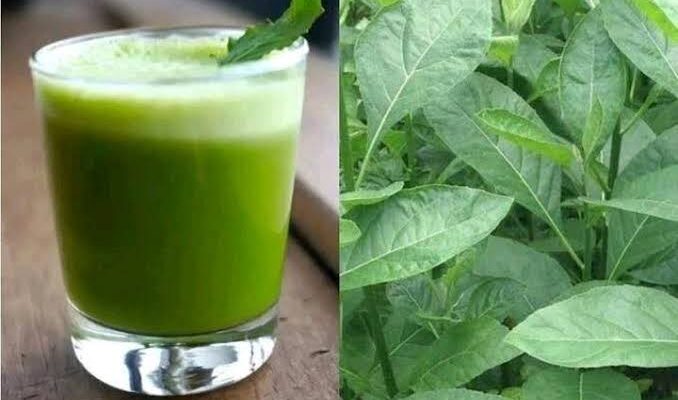10 Health Benefits of Bitter Leaf
Bitter leaf also known as Vernonia amygdalina, is a plant that is frequently employed in traditional medicine. This plant, which is indigenous to tropical Africa, is frequently used to make a variety of regional delicacies because of its many health advantages.
The bitter leaf gets its name from the bitter flavor it has. These are some medical conditions that bitter leaf may aid in treating or avoiding:
1.Diabetes
Since bitter leaf has been demonstrated to have anti-diabetic characteristics, managing diabetes can benefit from its use. Bitter leaf has a lot of phytochemicals like flavonoids and saponins that lower blood sugar levels in diabetics. Moreover, it has been demonstrated that bitter leaf extract enhances insulin sensitivity and glucose metabolism.
2.Malaria
For generations, bitter leaf has been used to treat malaria. Vernodalin and vernomygdin, two of the plant’s constituents, have been demonstrated to have antimalarial effects. Studies have also demonstrated that bitter leaf extract can lessen malaria symptoms and stop the spread of the illness. ALSO READ Why Nigerian doctors must practice for 5-years before travelling abroad — Reps (Video)
3.Cancer
Terpenoids, flavonoids, and alkaloids, which have been demonstrated to have anti-cancer activities, are among the phytochemicals found in bitter leaf. These substances function by limiting the development and spread of cancer cells within the body. Research have also revealed that bitter leaf extract has the ability to trigger apoptosis, which kills cancer cells.
4.Digestive difficulties
Antioxidants included in bitter leaf aid to shield the body from oxidative stress. Also, this plant contains a lot of fiber, which aids in healthy digestion and prevents constipation. Diarrhoea, upset stomach, and indigestion are just a few of the digestive issues that bitter leaf has been proven to be useful in treating.
5.Elevated blood pressure
The therapy of high blood pressure can benefit from the hypotensive characteristics of bitter leaf, which have been demonstrated. Vernodalin and vernomygdin, two substances found in the plant, aid in relaxing blood vessels and lowering blood pressure. Moreover, bitter leaf has been demonstrated to lower the risk of cardiovascular conditions, which are frequently linked to high blood pressure.
6.Skin conditions.
Since ancient times, bitter leaf has been used to treat a variety of skin conditions, including eczema, rashes, and acne. The plant includes substances with anti-inflammatory and antibacterial activities, including as saponins and flavonoids. These characteristics aid in reducing inflammation and thwart the development of microorganisms that can lead to skin issues.
7.Issues with the lungs.
As bitter leaf has been demonstrated to have anti-inflammatory qualities, it can be used to treat respiratory conditions including bronchitis and asthma. The plant has substances like saponins and flavonoids that improve breathing by reducing inflammation in the respiratory tract.
8.Liver conditions.
Bitter leaf can help prevent and treat liver issues because it has been demonstrated to have hepatoprotective effects. The plant includes terpenoids and flavonoids, which aid in defending the liver from harm from toxins and free radicals.
9.Renal issues
It has been demonstrated that bitter leaf has diuretic qualities, making it effective in the treatment of kidney issues such kidney stones and uTIs. The plant contains flavonoids and alkaloids, which assist to enhance urine output and stop kidney stones from forming.
10.Infections
Bitter leaf can be used to treat a variety of illnesses, including bacterial and fungal infections, because to its antibacterial qualities. Terpenoids and flavonoids, for example, which are present in the plant, aid in preventing the growth of germs.















Post Comment